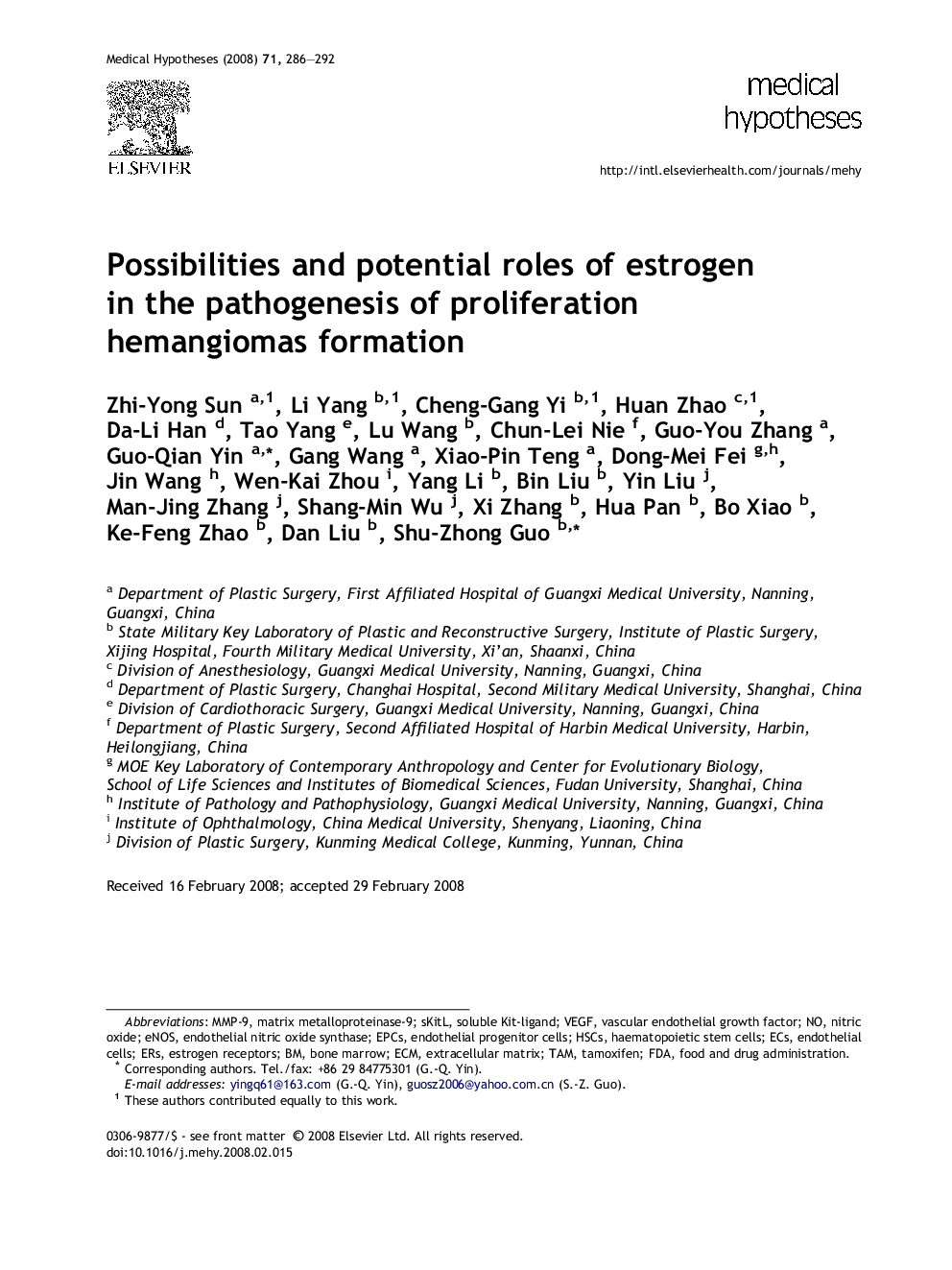| Article ID | Journal | Published Year | Pages | File Type |
|---|---|---|---|---|
| 2491376 | Medical Hypotheses | 2008 | 7 Pages |
SummaryHemangiomas, often categorized as angiogenic diseases, are the most common tumors of infancy, the life span of which is generally divided into proliferating phase, involuting phase, and involuted phase. Despite their high prevalence, the mechanism leading to proliferation hemangiomas formation is poorly understood and the best approach to their management remains controversial.None of the current therapeutic modalities is ideal, partly because the pathogenesis of hemangioma and the mechanism of its proliferation are far from clear.Many clues reveal that estrogen has an important role in developing the vascular system, experimental and clinical evidences accumulated in recent years also suggest the potential for estrogen to influence neovascularization. Based on those, we hypothesize that estrogen play a potential role in the development of hemangiomas, mainly by regulating some key angiogenic factors, including MMP-9, EPCs, VEGF, NO, etc. Accepting the hypothesis to be correct, a therapy that identify estrogen as a potential target for the design of new, more specific treatments can be used to prevent the proliferation hemangiomas formation.The hypothesis may lead a new direction in the study of mechanisms for proliferation hemangiomas formation, and further study of the precise mechanisms for estogen-induced hemangiomas will produce effective antiestrogens and estrogen receptor antagonists as new medication for the very difficult problem.
